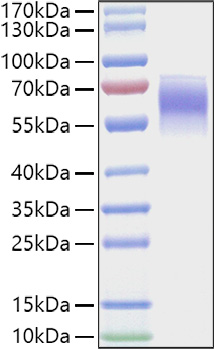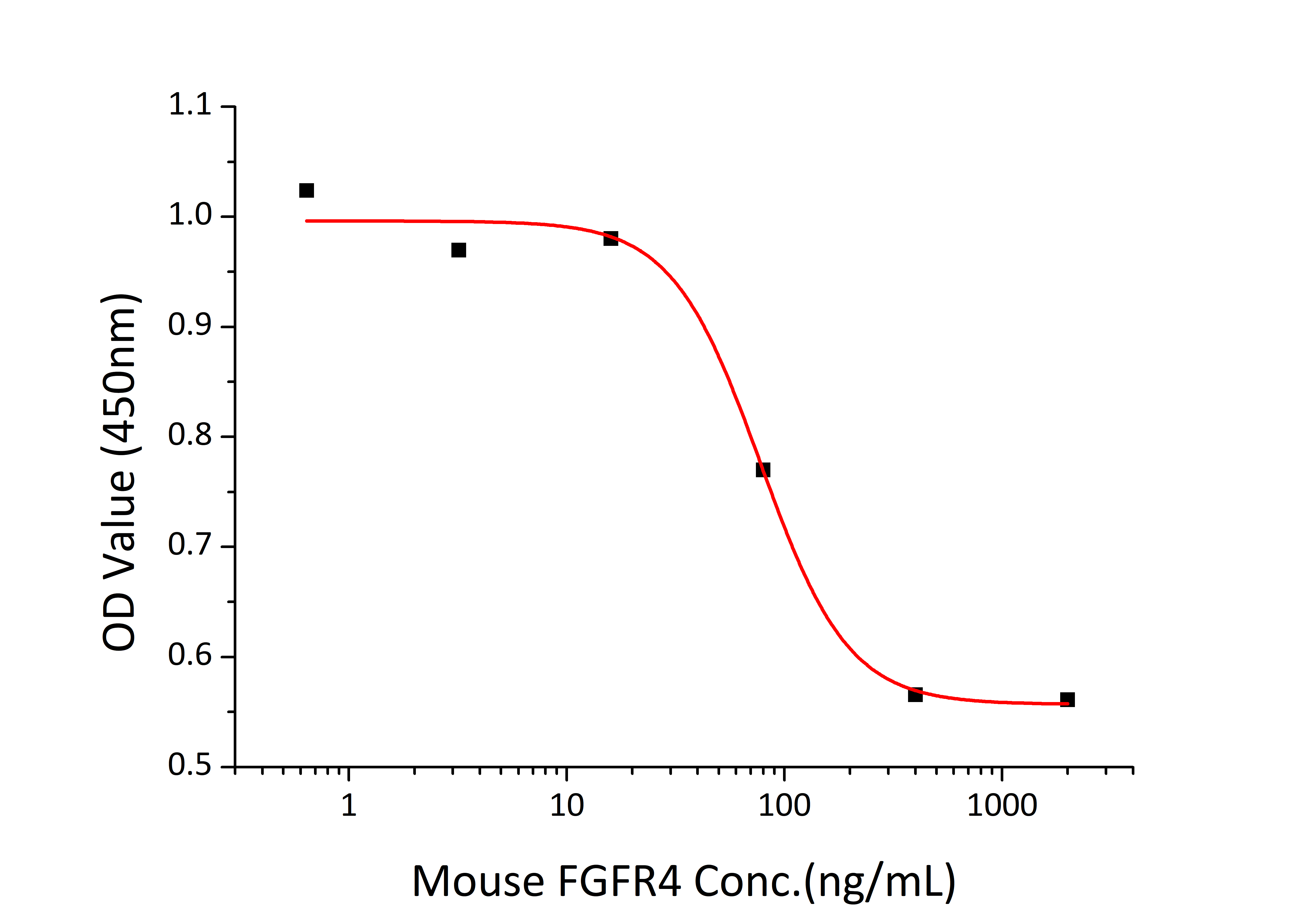Description
Recombinant Mouse FGFR-4/CD334 Protein
The Recombinant Mouse FGFR-4/CD334 Protein is a high-quality recombinant protein designed for murine biological research applications. This protein serves as an essential reagent in mouse model studies, comparative immunology research, and preclinical therapeutic evaluations, enabling scientists to investigate FGFR-4/CD334 biology and its relevance to human disease mechanisms through translational research approaches.
This product (SKU: RPCB1409) is produced using HEK293 cells and features a C-His tag for convenient detection and purification. The protein exhibits a calculated molecular weight of 39.65 kDa with an observed molecular weight of 55-70 kDa under denaturing conditions, achieving ≥ 95 % as determined by SDS-PAGE.. Functional bioactivity has been validated through rigorous quality control assays, confirming its suitability for demanding research applications.
Key Features
| High Purity by Affinity Chromatography | |
| Mammalian & Bacterial Expression Systems | |
| High lot-to-lot consistency via strict QC |
| Product Name: | Recombinant Mouse FGFR-4/CD334 Protein |
| SKU: | RPCB1409 |
| Size: | 10 μg , 20 μg , 50 μg , 100 μg |
| Reactivity: | Mouse |
| Synonyms: | Fgfr-4, FGFR4, CD334, JTK2, MGC20292, TKF, FGFR4, Fgfr-4, FGFR4, CD334, JTK2, MGC20292, TKF, FGFR4 |
| Tag: | C-His |
| Expression Host: | HEK293 cells |
| Calculated MW: | 39.65 kDa |
| Observed MW: | 55-70 kDa |
| Gene ID: | 14186 |
| Protein Description: | High quality, high purity and low endotoxin recombinant Recombinant Mouse FGFR-4/CD334 Protein (RPCB1409), tested reactivity in HEK293 cells and has been validated in SDS-PAGE.100% guaranteed. |
| Endotoxin: | < 0.1 EU/μg of the protein by LAL method. |
| Purity: | ≥ 95 % as determined by SDS-PAGE. |
| Formulation: | Lyophilized from a 0.22 μm filtered solution of PBS, pH 7.4. |
| Bio-Activity: | Measured by its ability to inhibit FGF acidic-dependent proliferation of Balba3T3 mouse fibroblast cells.The ED 50 for this effect is 38.74-154.96 ng/mL in the present of mouse FGF-1/aFGF(RPCB0566), corresponding to a specific activity of 6.45×10 3 ~2.58×10 4 units/mg. |
| Reconstitution: | Centrifuge the vial before opening. Reconstitute to a concentration of 0.1-0.5 mg/mL in sterile distilled water. Avoid vortex or vigorously pipetting the protein. For long term storage, it is recommended to add a carrier protein or stablizer (e.g. 0.1% BSA, 5% HSA, 10% FBS or 5% Trehalose), and aliquot the reconstituted protein solution to minimize free-thaw cycles. |
| Storage: | Store at -20℃.Store the lyophilized protein at -20℃ to -80 ℃ up to 1 year from the date of receipt. After reconstitution, the protein solution is stable at -20℃ for 3 months, at 2-8℃ for up to 1 week. |
The protein is a member of the family of carcinoembryonic antigen-related cell adhesion molecules (CEACAMs), which are used by several bacterial pathogens to bind and invade host cells. The encoded transmembrane protein directs phagocytosis of several bacterial species that is dependent on the small GTPase Rac. It is thought to serve an important role in controlling human-specific pathogens by the innate immune system. Alternatively spliced transcript variants have been described.








